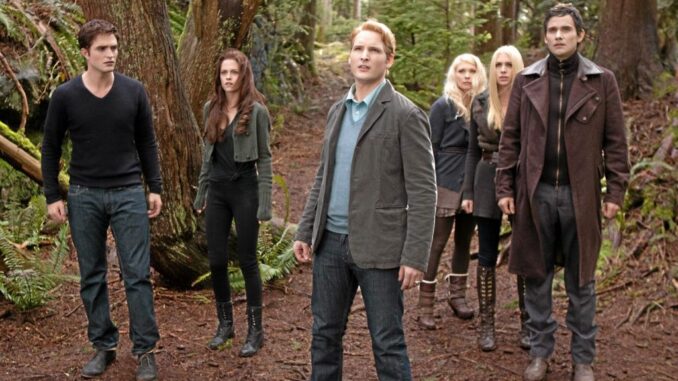
The age of seventeen is, for most, a delicate and tender season. It is the time of gangly limbs and unformed thoughts, of navigating the treacherous currents of self-discovery in the relatively safe harbor of anonymity. Mistakes are whispered secrets, triumphs are shared smiles, and the future remains a boundless, hazy expanse. But imagine, for a moment, if this intensely private metamorphosis were to unfold under the unforgiving glare of a million spotlights, dissected by a million eyes, and amplified to the roar of a global phenomenon. This is the curious and often painful alchemy Kristen Stewart describes when she admits that fame was awkward at 17, and the Twilight era forced her to grow up.
Her admission is not a complaint, but a quiet, reflective truth that illuminates the profound burden placed upon a burgeoning talent. Seventeen is awkward by nature. It is the age where one’s skin often feels a size too small, where conviction battles uncertainty, and where the self is a constantly shifting entity. For Kristen Stewart, with her natural shyness and an almost palpable internal world, this innate teenage discomfort was not merely present; it was thrust onto a global stage, her every nervous habit, every flicker of doubt, every hesitant smile scrutinized and interpreted. She wasn't just feeling awkward; she was performing it, unwittingly, for an audience that measured every breath against the polished ideal of a Hollywood star. The quiet intensity that would later define her acting was, perhaps, initially a protective shell, a way to navigate a world that demanded an answer before she had even formulated the question.
Then came Twilight, not merely a movie, but a cultural supernova. Suddenly, the quiet, thoughtful teenager was not just an actress, but the unwitting face of a worldwide obsession. The demands shifted from mere performance to an existential one: she was expected to embody Bella Swan, the relatable, introspective heroine, both on and off screen. The line between character and self blurred, not by her choice, but by the relentless hunger of public imagination. This was no longer just about acting; it was about living under a magnifying glass, where every private emotion was ripe for public consumption, where personal awkwardness became tabloid fodder, and where the simple act of existing became a carefully managed performance.
This, then, is where the "forced to grow up" enters the narrative. Adolescence is a period of controlled rebellion, of testing boundaries, of making blunders that, in time, become amusing anecdotes. But for Stewart, there was no room for those unremarked stumbles. Every error was magnified, every relationship sensationalized, every quiet moment interrupted. She was a sapling trying to find its roots in a hurricane. To survive, she had to erect an impenetrable internal architecture, to develop a preternatural wisdom that belied her years. She had to learn, at an astonishing pace, how to compartmentalize, how to protect her inner self from the voracious demands of the external world, how to project an image of composure even as her authentic, 17-year-old self might have been screaming inside.
The growth wasn't organic; it was accelerated, almost hothoused. She gained a formidable resilience, an unwavering authenticity that would later define her post-Twilight career, but it came at a cost. She skipped chapters of typical adolescence, trading private rites of passage for public ones, navigating the labyrinth of identity not through quiet introspection but under the glaring lights of global fame. Her eventual quiet rebellion – her choice of unconventional roles, her unapologetic demeanor, her refusal to be anything but herself – is not just a personal triumph; it is the hard-won freedom of someone who spent their formative years in a gilded cage, and then, piece by piece, learned to pick the lock.
Kristen Stewart's admission offers a poignant glimpse into the peculiar crucible of child stardom, especially during a media explosion like the Twilight saga. It reminds us that behind the shimmering veneer of celebrity lies a very real human being, one who, at 17, was trying to figure out who they were, just like everyone else. Her journey, marked by that awkward, forced growth, is a testament to the enduring human spirit's ability to forge a unique and authentic path, even when the world is watching, waiting, and demanding that you be someone else entirely.
